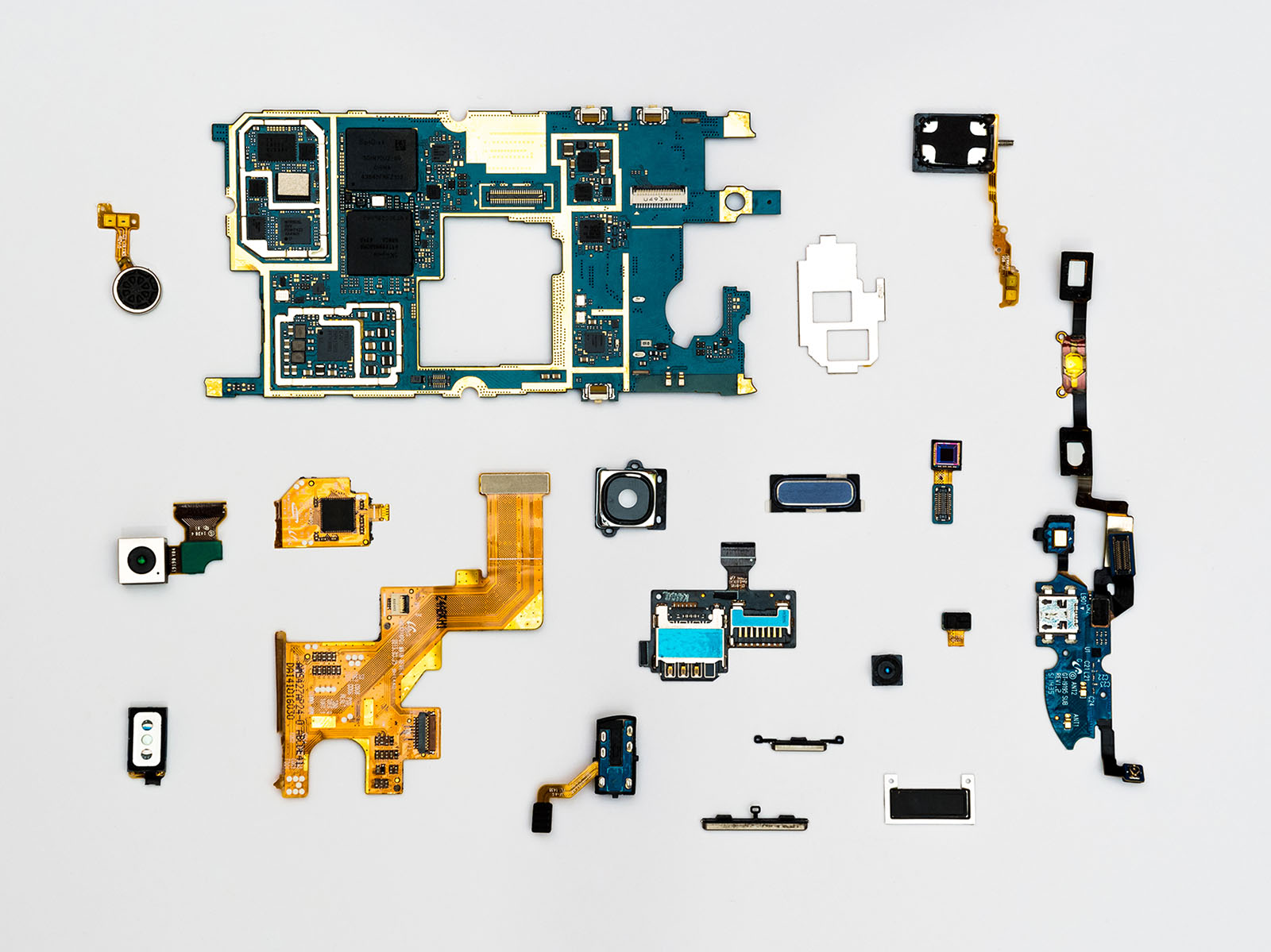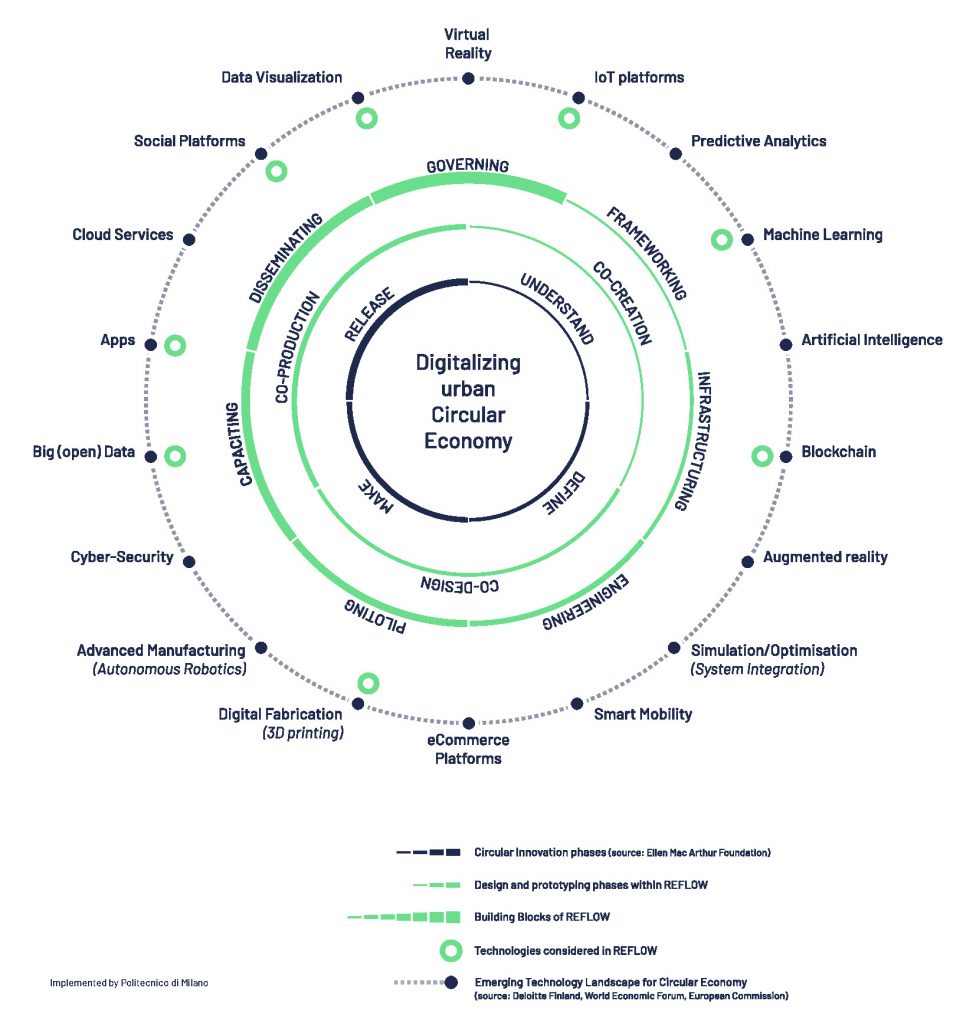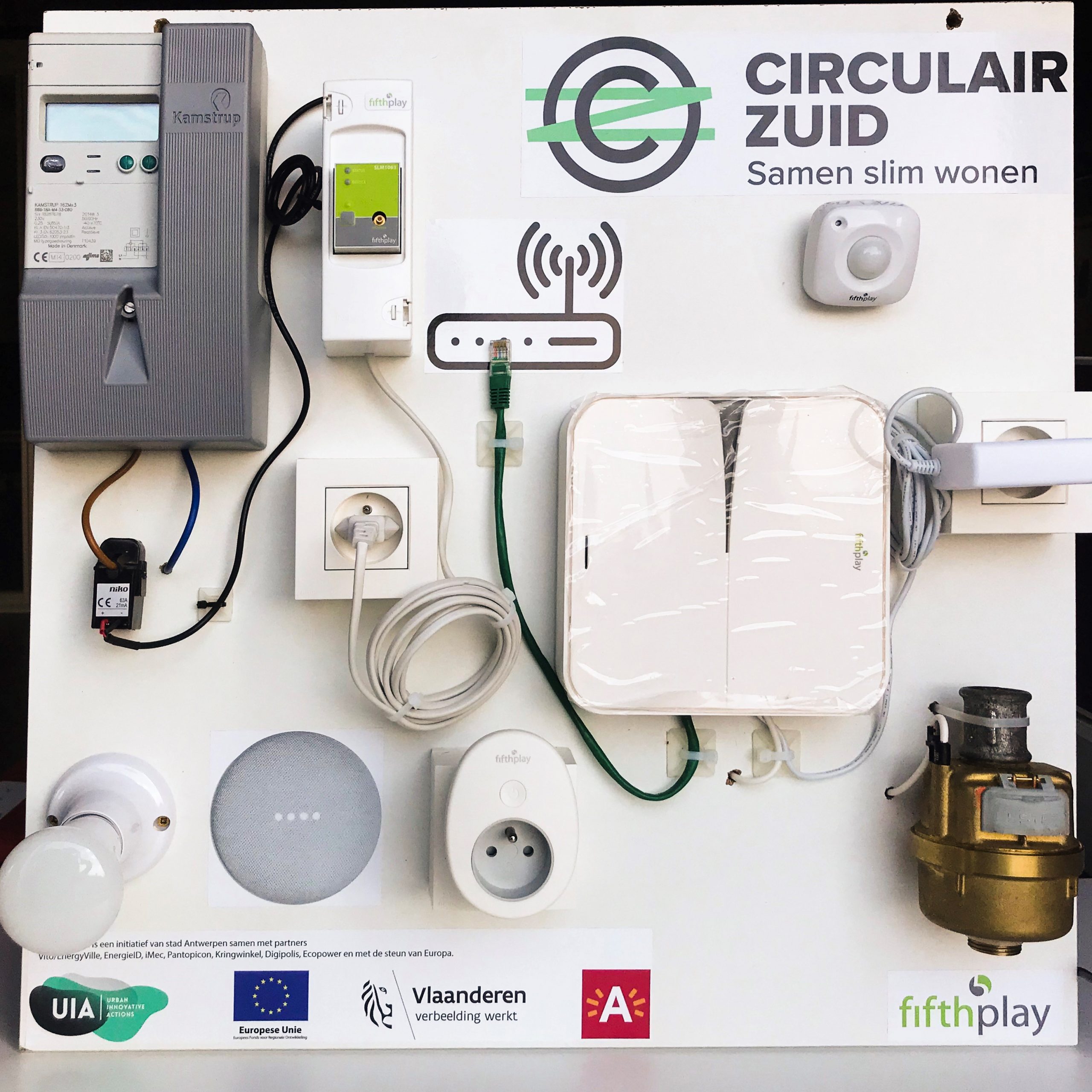Transitioning to circular cities with digital technologies
Connecting digital transformation to the circular economy
Many European metropolises are making circularity their central objective in years to come. In parallel to this, digital transformation continues to reshape industries, urban infrastructure and business models. How can we best connect digital transformation and circular economy in city transitions? This question is at the core of REFLOW’s journey.
Digitalisation and Circularity, hand in hand
According to the Ellen McArthur Foundation, digitalisation is one of the main enabling factors to increase product visibility, smartness, location, condition and availability (Ellen McArthur Foundation, 2016). Digital technologies can track the journey of products, components and materials, whilst also make the resulting data secure and accessible. In turn, this data helps to measure circularity and spark innovations based on distributed technologies.

Digitalisation has the potential to increase product visibility, smartness, location, condition and availability.
A recent EIT Climate-KIC report sums up the potential of digitalisation and circularity –
“Digitalisation offers us the opportunity to reinvent our relationship to natural resources. IoT applications will intensify connectivity between units, gathering data across things and people. Blockchain brings greater transparency, security and traceability. AI allows us to analyse data with higher detail and accuracy, increases resource efficiency and productivity, enables predictive maintenance, and opens up further untapped potentials” (EIT Climate-KIC, 2019).
Beyond these promising developments, digitalisation within the circular economy is, however, still at an early stage. Specific challenges still need to be addressed: the integration between software and hardware technologies; the need for complete and accurate data; an existing data access and data standard problem, and the challenge of interoperability between technologies.
Digital technologies for circular cities
Several digital technologies have the potential to play a key role in the transition towards circular cities. Some technologies support the mapping of resources or the alignment between data and material flows (engineering building block); the redefinition of operational models through connectivity among data, devices and stakeholders (governing and infrastructure building blocks); the production and upgrade of solutions (piloting and framework building blocks); whilst other IT solutions allow communication, dissemination and learning of circular practices (capacitating and disseminating building blocks). Within REFLOW, several digital technologies are being considered and prototyped accordingly (see figure below).
The importance of Blockchain, IoT and Open Data
Six pilot cities in the REFLOW project are considering an integration of Open Data platforms and Blockchain Technologies. This, combined with the use of prototyping of IoT solutions could, in the future, provide significant opportunities for the creation of circular business models.
Blockchain
In the context of circular economy, blockchain facilitates the management of information within waste recycling programmes, reusability of materials, reduction of energy consumption and carbon emissions.
In these programmes, information is recorded in a decentralised way. This makes it possible to monitor different types of transactions, ranging from the use of raw materials to the sale of the final product by tracing its origin. The blockchain can, therefore, be useful and advantageous to trace the origin of a raw material, stimulate the sustainability of supply chains, and facilitate the sharing of information within production chains.
Internet of Things (IoT)
In general terms, this technology implies the inclusion of sensors into devices, making them able to communicate and actively participate in an information network. Through the IoT, it is possible to remotely monitor the use, status and position of a product in real-time, increasing the possibilities to manage its end-of-life collection, reconditioning, remanufacturing and recycling. The development of IoT-based experimentations in the circular economy area changes structural, strategic and cultural changes to all involved.
Open Data
The correlation between data and circularity is one of the most recurrent topics in the debate on the CE digitalisation. A recent study entitled “Open data in Circular Economy” has mapped open data solutions used in the circular economy sector in Finland and worldwide (Saario et al. 2019). The results show that the use of open data related to resources and material flows in circular business models is challenging.
Critical elements in experimental initiatives using open data fluctuate on availability, completeness, reliability and impartiality (i.e., the lack of standards). Moreover, they report a widespread lack of culture on the subject or the reluctance of individuals or organisations (especially companies) to share data in highly competitive contexts. REFLOW is attempting to overcome these challenges.
Insights from Antwerp Circular South
Antwerp Circular South (Belgium) is a project funded by the initiative Urban Innovative Actions of the European Union, focusing on a neighbourhood called The New South District (Nieuw Zuid). The project aims to position circularity as a ‘community challenge’ for the New South district and to engage its new residents in online and offline co-creation initiatives to change their consumption behaviours.
The project experiments with behavioural nudging on specific topics: electricity, heat, water consumption, materials reuse, waste reduction. As part of its mixed strategy, the project combines social innovation activities (e.g., citizen Energy Cooperative) and technological innovations.
Data and digital technologies have a prominent role in the project. Sensors, and measurement systems for each household (i.e., IoT technologies) will collect consumption data and make them available among participants. A blockchain-based system will reward and encourage positive behaviours with a digital currency, called Circules. When addressing digitalisation in the context of a circular economy, this project brings in two valuable lessons:
- The combination of online and offline activities.
The importance of a mixed strategy that joins online/offline activities for community engagement is clearly made explicit. Establishing a physical community hub (CIRCUIT) as an offline interface for engagement can support the development of online solutions.
- Co-creation ensured at several levels of the process.
The use of innovative technological solutions, like blockchain, was central to the project. To ensure its wide adoption, the project organised moments of co-creation and community engagement. The development of the dashboard platform, displaying consumption data, and the general rules of the digital currency were strategic aspects co-designed with the community of future users.
If digitalisation is a key enabler of a circular city transition, it should be framed in a co-design process that blends both digital and physical interactions, with end-users taking a central space in the co-creation of the solutions. As REFLOW continues its journey, we will further experience how to put this into practice. Stay tuned!
This blog post is inspired by the report Co-production practices in Pilot Cities – Polimi (deliverable d1.1). Focused on co-production practices and technological infrastructure, this work reflects on the activities developed and planned in the project, together with best cases and theories. Valuable insights are extracted to understand how to align these two topics with the overall transition to circular and regenerative cities.
References
Ellen MacArthur Foundation. (2016). Intelligent Assets: Unlocking the Circular Economy Potential.


